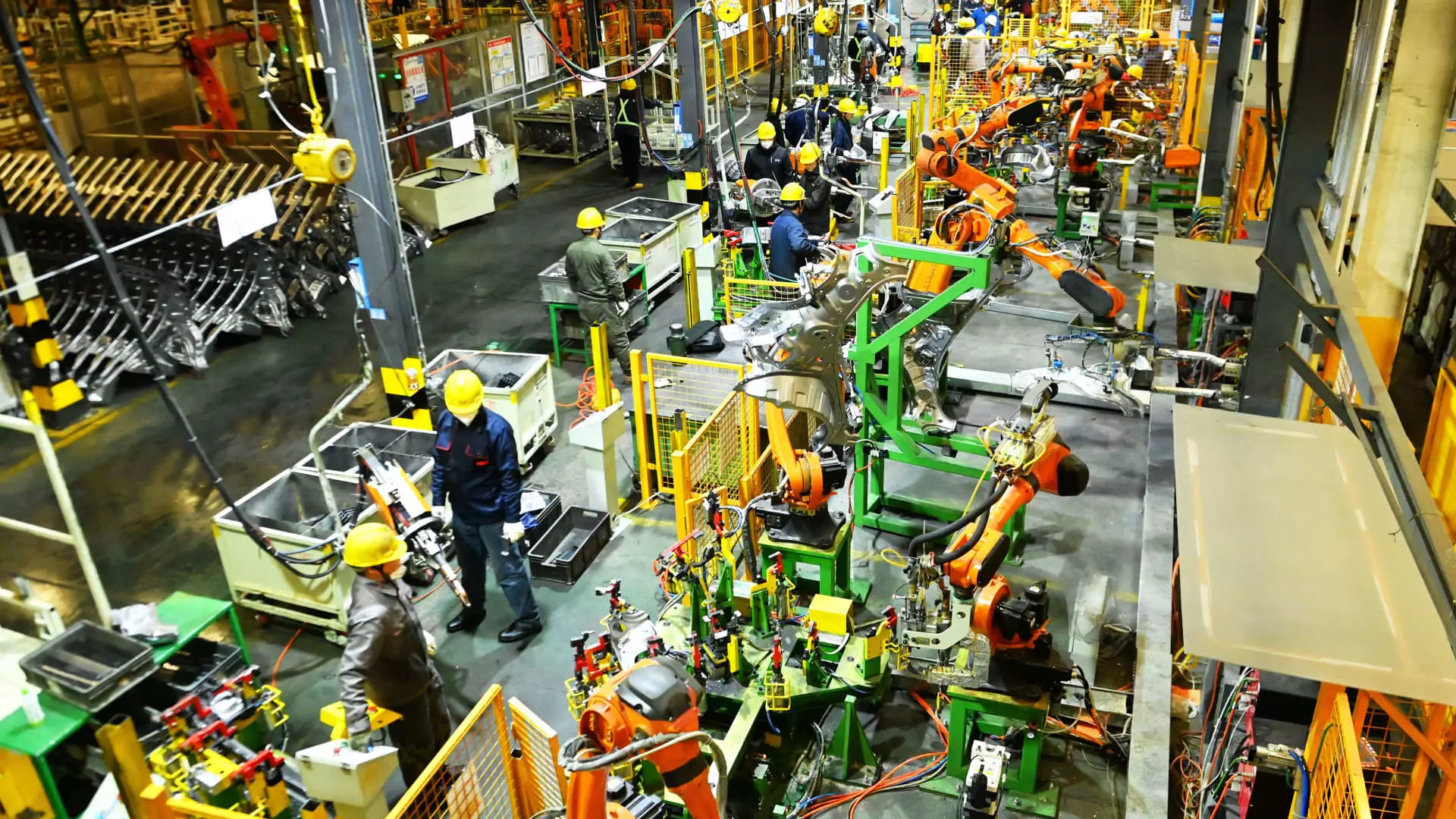As President Donald Trump contemplates exemptions for automakers from the punitive tariffs imposed on automotive parts, the auto industry finds itself precariously balancing on a tightrope. The recent revelations from the White House suggest an inclination towards offering relief—specifically from tariffs on auto components imported from China, which Trump initially enacted to combat the fentanyl crisis. Yet, this proposed exemption has been a source of concern for many, as it has the potential to muddle an already turbulent economic landscape. The looming 25% tariffs on imported vehicles and auto parts, set to take effect by May 3, create a climate of anxiety not just for automakers but for consumers and stakeholders across the spectrum.
The Ripple Effect on Stocks and Industry Confidence
In the wake of the administration’s recent tariff discussions, stock prices for several automakers and suppliers experienced a minor uptick. It’s a momentary flicker of positivity amidst an overarching atmosphere of trepidation. Automakers have consistently lobbied for relief, facing an avalanche of costs driven by the stacking tariffs—a situation that has led to a united front among high-profile auto policy groups. Their concerted effort, a rarity in a sector typically characterized by competition, underscores the urgency of their plight.
Yet, the mere potential for tariff exemptions should not be mistaken for genuine relief. The fear that these forthcoming tariffs could exacerbate existing economic strains is palpable. Companies can only operate effectively within a framework of predictable regulations and fair competition. The automotive sector is already grappling with pressures on production costs, and the idea that Trump may further raise tariffs imposed on cars imported from Canada does little to instill confidence. Such irresponsible decision-making can spiral into a crisis that reverberates beyond auto showrooms and into the broader economy.
Industry Perspectives: A Cry for Clarity
Voices within the automotive landscape, such as General Motors CEO Mary Barra, echo a common refrain: clarity and consistency in regulations are essential for fostering sustainable investments. When an industry faces fluctuating policies, it can breed chaos rather than innovation. The uncertainty surrounding tariffs hampers automakers’ ability to make strategic decisions about their future, threatening the very fabric of an industry that is pivotal to the American economy. Barra speaks for many when she articulates the need for a stable policy environment to mitigate risk and enhance competitiveness.
The pressing question remains: what kind of strategic vision does this administration have for the automotive industry? The lack of a clear trajectory raises alarming doubts about the potential for collaboration between policymakers and industry leaders. The need for comprehensive and coherent policy cannot be overstated; without mutual respect and consideration, the very foundation of American automotive manufacturing might be at risk.
The Specter of Economic Warfare
The ongoing tariff saga can be perceived as a form of economic warfare, a strategy that risks alienating vital trade partners while neglecting the dire consequences this may bring to domestic industries. The current political climate promotes a narrative of isolationism that undermines the principles of a globalized economy. The idea that one can turn a blind eye to the interconnectedness of international trade is both shortsighted and naive.
Furthermore, the administration’s approach seems impulsive, lacking in the holistic understanding of the automotive industry dynamics. Pitting domestic production against imports without a comprehensive analysis of the mechanics at play can lead to disastrous outcomes. A fractured approach not only escalates costs for American consumers but also jeopardizes the opportunity for the automotive sector to thrive in the global marketplace.
While the notion of tariff exemptions may temporarily lift spirits, the fundamental concerns regarding clarity, consistency, and the broader implications of tariffs create an environment rife with uncertainty. The automotive industry deserves more than piecemeal policies and reactive measures; it needs a forward-thinking strategy that recognizes the complexities of modern economic interdependence.


Leave a Reply